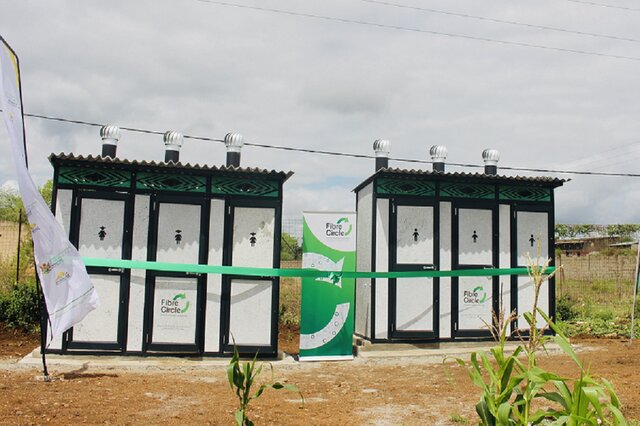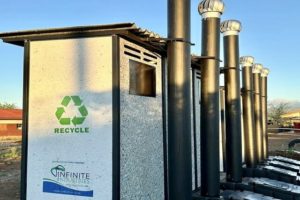Johannesburg — Fibre Circle, in collaboration with Infinite Industries and Food and Trees for Africa, launched a pilot for its Zithande Mzansi programme, in October 2023 at Sizimisele Primary School.
The programme aims to eliminate pit latrines in schools across Mpumalanga while also educating the schools and their surrounding communities about the benefits of the circular economy. This pilot project covers the Mtfunyelwa Pre-Primary, Sizimisele Primary and Ntiyi Secondary Schools in the Nkomazi Local Municipality.

The launch was addressed by the Member of the Mayoral Committee, Ehlanzeni District Municipality Cllr J Mavuso, and was attended by the Chief Director for District Support Services at Mpumalanga Agriculture, Rural Development, Land and Environmental Affairs, Dr. M.C Dagada; the Speaker of Council for the Nkomazi Local Municipality, Cllr Hilda Nyambi, and representatives of the Departments of Education and Cooperative Governance and Traditional Affairs.
Dima Mashele, Community Relations and Education Officer at Fibre Circle, says that the Zithande Mzansi programme is part of an integrated effort to bring about environmental and behavioural change in communities across the country, centred on recycling and the circular economy.
“Fibre Circle is a producer-responsibility organisation mandated to lead efforts to keep paper and packaging products out of landfills. We’re looking at ways to educate schools, businesses and the communities at large in the benefits of the circular economy,” she says. “This pilot programme is set to run for 12 months initially but the aim is for it become permanent—and act as a test case for other areas.”
Zithande Mzansi has three interlocking components. The first is to improve food security via the planting of trees and vegetable gardens at the schools under the auspices of Food and Trees for Africa. These gardens will not only provide food for the school children and local community members, they will also be a vehicle by means of which skills can be transferred to the community at large.
A second key component is the provision of environment-friendly Dignity Loos to the schools, whose pupils are currently condemned to use dangerous, unsanitary pit latrines. Supplied by Infinite Industries, these Dignity Loos’ cubicles, roofs, walls and doors are made from compressed poly-aluminium (poly-alu). This poly-alu is derived from the foil layers of liquid beverage cartons used for products like fruit juice, milk and wine, as well as that from used toothpaste tubes. The toilets use less than one litre of water to flush and toilet’s container is designed to dry the solid waste, which can then be used to enrich the soil in the gardens.
The third component of the Zithande Mzansi programme is the recycling of paper and packaging. Schools are provided with recycling bins in which to collect this material, which is then collected by local businesses that form part of a parallel SMME Development Programme. The businesses pay the schools for the material they collect, providing a source of income while also removing waste from the school and its surrounding community.

“The idea is to create a sustainable, mutually reinforcing circular economy in which maximum use is made of resources, and the community as a whole benefits,” says Mashele. “As such we encourage communities to harness the power of collecting and recycling used paper and packaging. We look forward to rolling this concept out across the whole province of Mpumalanga as we demonstrate the power of the circular economy to improve communities on multiple levels.”
Follow African Insider on Facebook, Twitter and Instagram
Picture: Supplied
For more African news, visit Africaninsider.com
Compiled by Matthew Petersen



